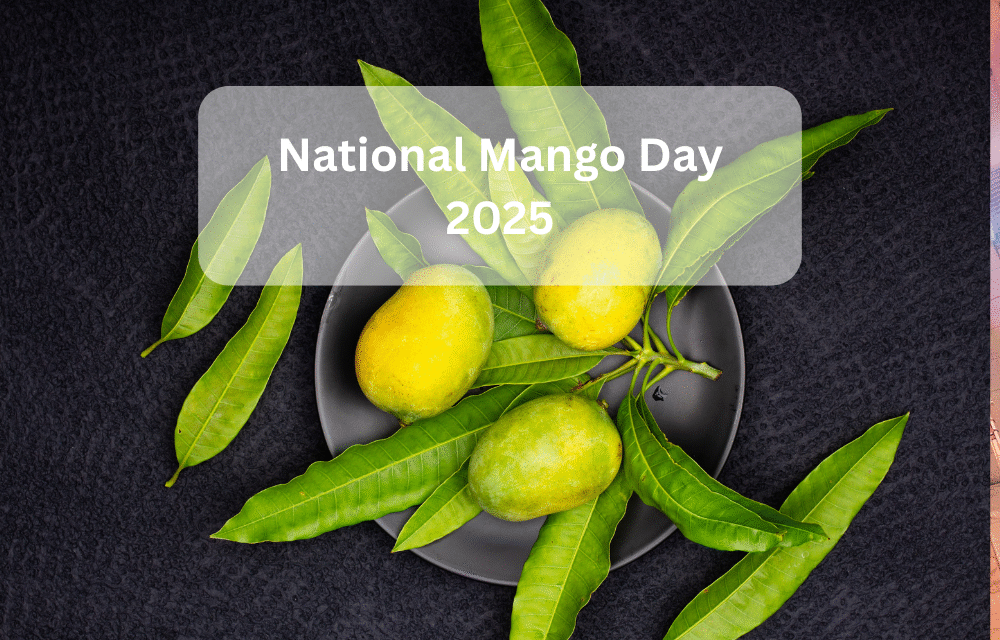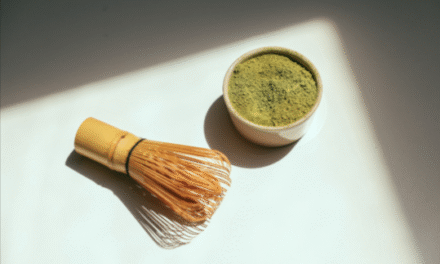Every year on August 22nd, mango lovers worldwide celebrate National Mango Day—a special occasion dedicated to one of the most delicious, versatile, and culturally significant fruits on the planet. Known as the “King of Fruits,” the mango has been cherished for thousands of years, not only for its irresistible sweetness and unique aroma but also for its rich history and impressive nutritional benefits.
This blog will explore the origins of National Mango Day, the global appeal of mangoes, their health benefits, and how companies like Del Monte and even cafes like Luckin Coffee are helping bring mango flavors to consumers worldwide.
The Origin and Importance of National Mango Day
While the exact origins of National Mango Day are somewhat unclear, the day has grown in popularity across many countries, especially those where mangoes are deeply woven into the cultural fabric. August 22nd is celebrated as a way to recognize the mango’s significance in history, agriculture, cuisine, and everyday life.
Mangoes have been cultivated for over 4,000 years, originating from South Asia. Their cultivation spread across Southeast Asia, Africa, and the Americas, adapting to different climates and local tastes. Today, mangoes are grown in over 100 countries, with India leading as the largest producer by a significant margin.
The day serves as a reminder to appreciate the fruit’s role not only as a delicious treat but also as a cultural symbol. In many places, mango leaves and branches are used in religious ceremonies, weddings, and festivals, symbolizing fertility, prosperity, and good fortune.
Mango Varieties and Their Global Appeal
One of the reasons mangoes are so beloved worldwide is their incredible variety. There are hundreds of mango cultivars, each with distinct flavors, colors, sizes, and textures. Some of the most famous include:
- Alphonso (India): Often called the “king of mangoes” for its rich, sweet, and fragrant flesh.
- Ataulfo (Mexico): Known for its creamy texture and honey-like sweetness.
- Haden (Florida, USA): A classic variety with a balance of sweet and tart.
- Tommy Atkins (popular in the Americas): A firm mango with a mild flavor, favored for its durability and transportability.
Whether eaten fresh, blended into smoothies, or incorporated into dishes, mangoes adapt well to countless culinary uses.
Del Monte and the Commercial Mango Industry
Global companies like Del Monte have played a crucial role in bringing mangoes to markets far from where they’re grown. As a major player in the fresh produce industry, Del Monte supplies a wide range of fruits—including mangoes—to grocery stores and consumers worldwide.
Their expertise in quality control, packaging, and logistics ensures that mangoes arrive fresh and ready to enjoy, even in places where mango trees don’t grow naturally. The availability of quality mangoes year-round, thanks to companies like Del Monte, has helped maintain the fruit’s popularity and accessibility.
Mangoes in Modern Cuisine and Beverages
The versatility of mangoes extends beyond fresh eating. They have become key ingredients in global cuisines—from the spicy mango chutneys of India to the refreshing mango sticky rice of Thailand.
Even contemporary cafes and beverage brands are capitalizing on mango’s popularity. For example, Luckin Coffee, a rapidly expanding coffee chain, has incorporated mango flavors into its seasonal drinks and desserts to appeal to fruit-loving customers seeking a tropical twist. This fusion of mango with coffee culture highlights how the fruit continues to inspire innovation across food and beverage sectors.
Health Benefits: More Than Just a Sweet Treat
Mangoes are not only delicious but also packed with nutrients that offer numerous health benefits:
- Rich in Vitamins: Mangoes are a powerhouse of vitamin C and vitamin A, which support immune health, eye health, and skin vitality.
- High in Antioxidants: They contain polyphenols and carotenoids that help fight oxidative stress and reduce inflammation.
- Digestive Aid: The fruit provides dietary fiber and contains enzymes like amylases that assist in breaking down carbohydrates, promoting better digestion.
- Heart Health: Nutrients like potassium and magnesium in mangoes support cardiovascular health by helping regulate blood pressure.
Incorporating mangoes into your diet can be a delicious way to boost overall wellness.
Celebrating National Mango Day: Fun Ideas and Traditions
If you’re wondering how to mark National Mango Day, here are some ideas to savor the fruit and celebrate its cultural importance:
- Try New Mango Recipes: Experiment with mango smoothies, salsas, desserts, or salads. You could try making a classic mango lassi or mango sorbet.
- Host a Mango Tasting: Invite friends or family to taste different mango varieties and compare their flavors.
- Visit Local Markets: Support local farmers or distributors selling fresh mangoes, possibly including brands like Del Monte.
- Share Mango Stories: Use social media to share fun facts, recipes, or photos celebrating mangoes.
- Pair Mango with Coffee: Try pairing mango desserts or drinks, such as those available at Luckin Coffee, with your favorite brews.
Mango Festivals Around the World
Several countries celebrate mango season with festivals that highlight the fruit’s agricultural and cultural significance. In India, mango festivals showcase dozens of mango varieties, offering tastings, cultural performances, and educational workshops.
Mexico and the Philippines also host vibrant mango festivals featuring parades, cooking competitions, and live music. These festivals are a joyful way to unite communities and celebrate the fruit that holds such a special place in their hearts.
Mango and Nature: A Parallel to National Parks
Mango cultivation is closely tied to the environment, requiring healthy soil, water, and biodiversity to thrive. This connection to nature is reminiscent of the role national parks play in protecting ecosystems. Just as national parks preserve natural habitats and species, sustainable mango farming practices help maintain soil health, water conservation, and biodiversity.
Supporting sustainable mango production means protecting both the fruit’s future and the planet’s health.
Conclusion: Honoring the King of Fruits on National Mango Day
National Mango Day is a chance to celebrate the remarkable journey of mangoes—from ancient trees in South Asia to supermarket shelves worldwide, supported by companies like Del Monte and featured in trendy spots like Luckin Coffee.
Beyond its sweet taste and vibrant color, the mango is a symbol of culture, health, and sustainability. Whether you enjoy it fresh, cooked, or blended, this king of fruits deserves a special place in our diets and hearts.
So this August 22nd, take time to savor a mango and appreciate the many ways it enriches our lives and cultures.











